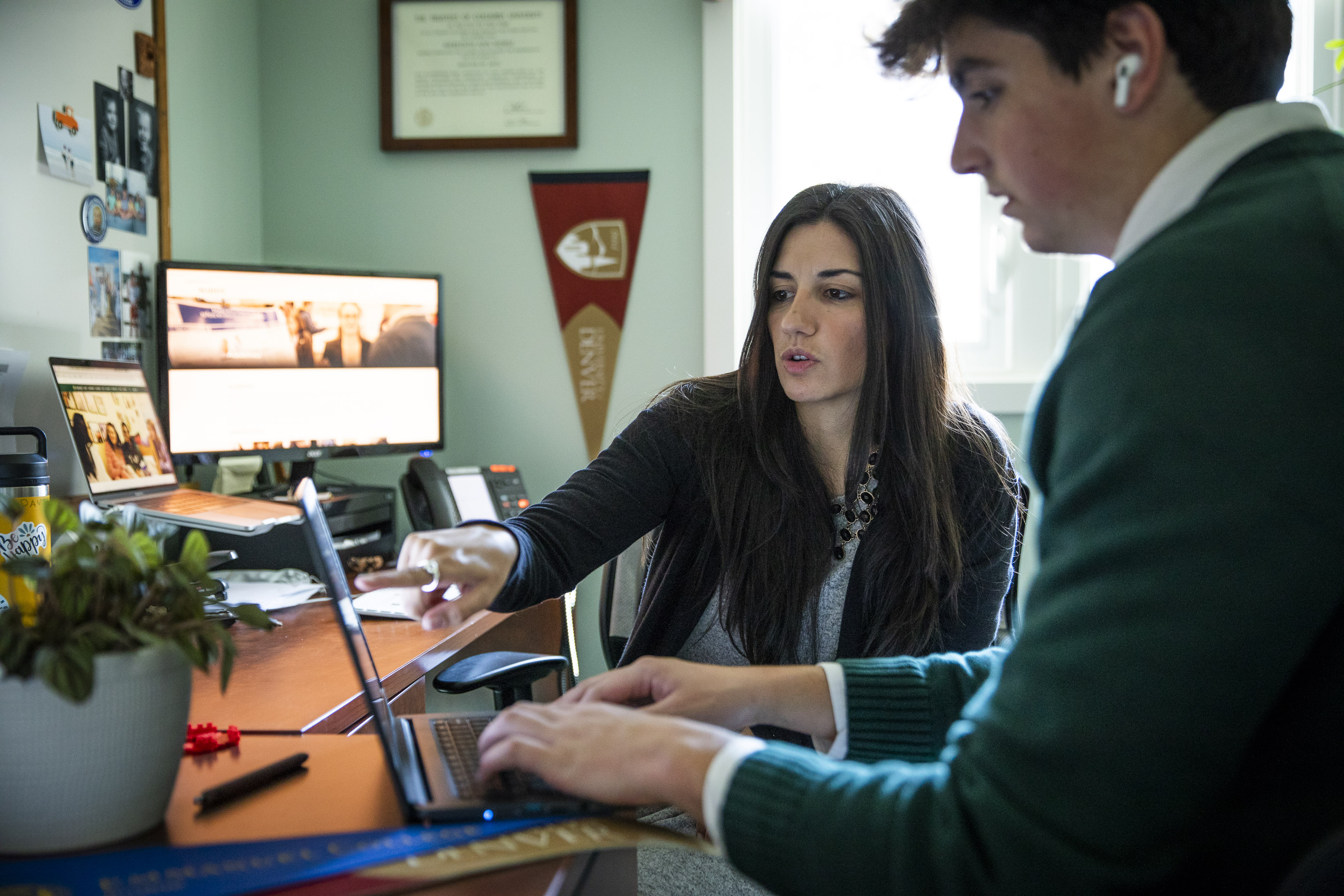Forman School is an independent, coeducational, college preparatory school for boarding and day students with identified learning differences. Forman develops the whole student, based on each individual’s learning profile, so that all graduates become educated, confident self-advocates throughout life.
From Forman to Their Futures: Part 3 — How Boarding Schools Prepare Students for College Transition
High school boarding students already have the experience of living away from home, preparing them early for living at college. In a survey from The Association of Boarding Schools, 78% of boarding school graduates say that they were very well prepared for the non-academic aspects of college life, such as independence, social life, and time management, compared to 36% of private day and 23% of public school students1.
“One of the hardest things about the college transition is being away from your family, living in a dorm, having a roommate, not knowing how to navigate conflict, and our kids prematurely go through that,” Jennifer Garton, Assistant Director of College Counseling, says. “Once they go to college, they can focus on their academics.”
Part of focusing on academic success in college for a student with a learning difference involves setting up available accommodations and support services. While colleges offer certain accommodations such as extended testing time, the availability of services such as executive function coaching and tutoring vary.
“We coach students and parents through what questions to ask, what accommodations and support services to look for, red flags to be aware of, what colleges are required to offer, and how to register for what is available to them,” Meredith Davis, Director of College Counseling, says. “In addition, School Psychologist Dr. Kelli Miller helps students understand their academic and personal needs at the college level.”
Davis adds that students seeking success must implement the skills they learned at Forman and persevere when challenging situations arise.
“First year of college is hard, no matter who you are,” she says. “If you immerse yourself in all that Forman offers, you will learn the skills necessary to succeed in college and beyond."
Click to read the first and second blogs in the “From Forman to Their Futures” series.
1 Art & Science Group. (2004). The Truth about Boarding School. The Association of Boarding Schools.
Want to future-proof your education?
It all starts with an inquiry.



